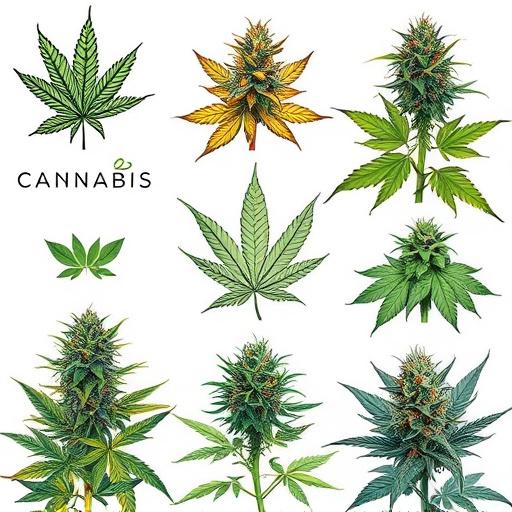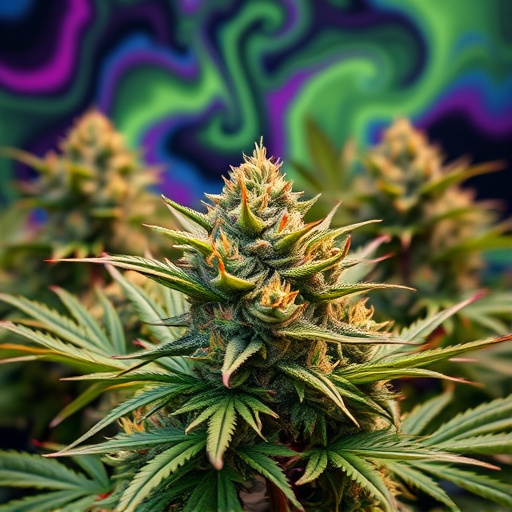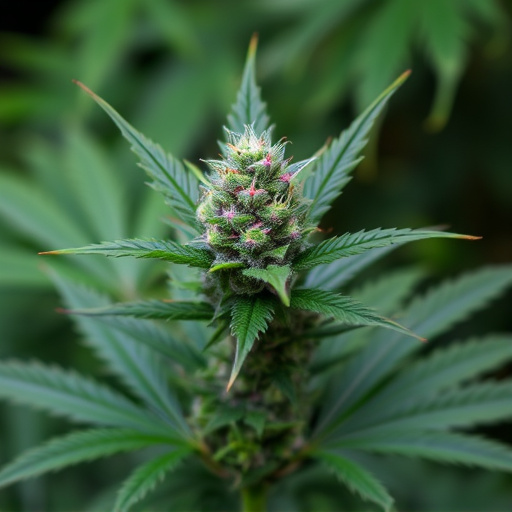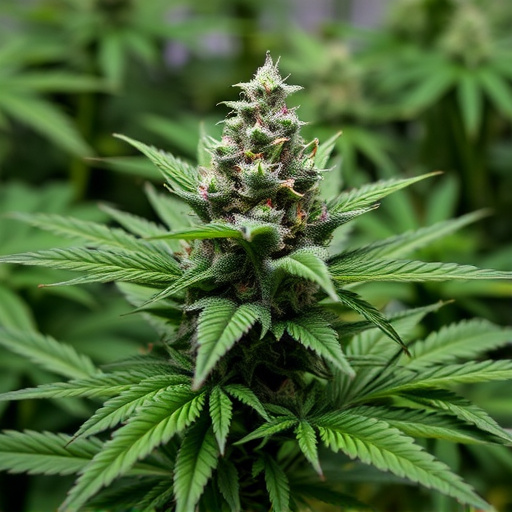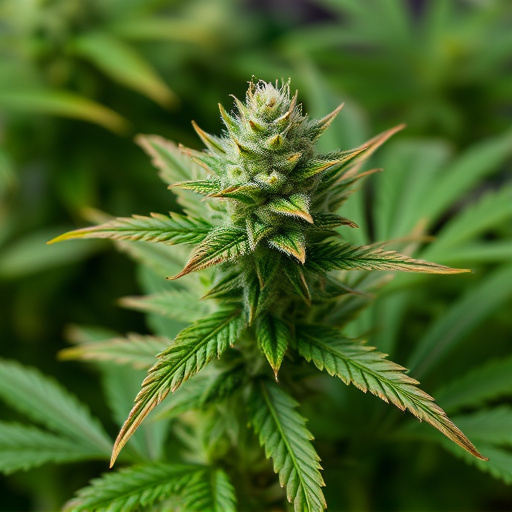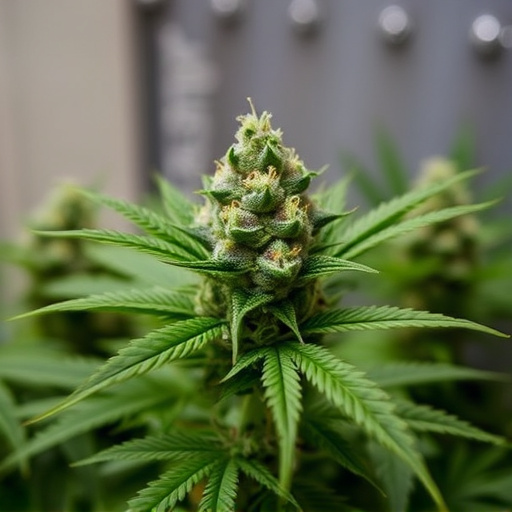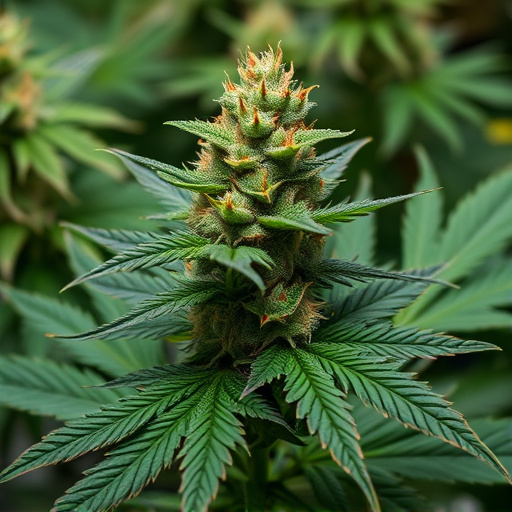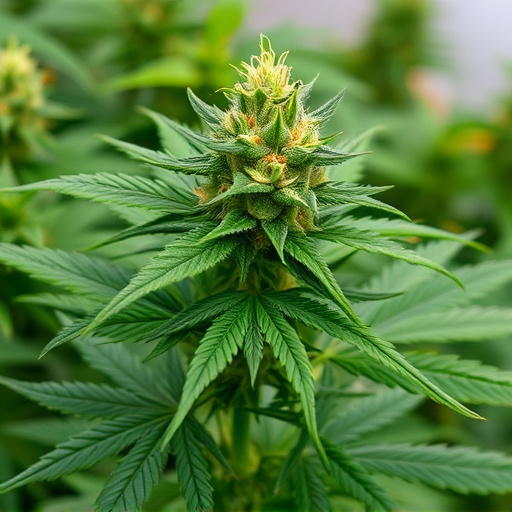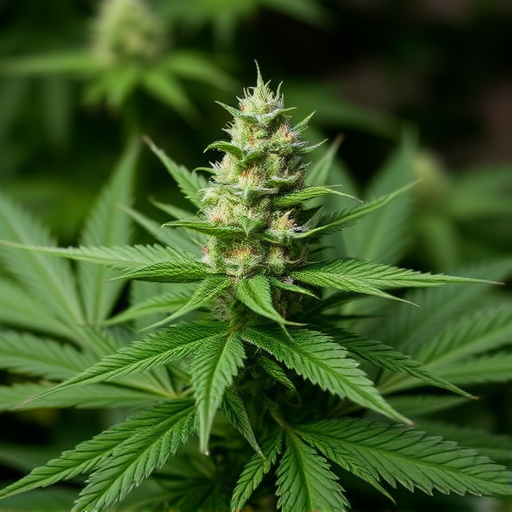High-THC cannabis strains (often >20% THC) offer relief from PTSD symptoms like anxiety and insomnia due to their interaction with the body's endocannabinoid system. While these strains provide immediate relaxation and heightened sensory perception, they may also trigger or worsen PTSD memories and anxiety. Consulting healthcare professionals is essential to find the right balance of THC and CBD levels (ideally high THC with anti-anxiety CBD) for individual needs; popular Indica strains are recommended for sleep quality.
“Unveiling the profound impact of high-THC (tetrahydrocannabinol) strains on both mind and body is essential, especially with its growing prevalence. This article navigates through the intricate composition of these potent strains and explores their effects. We delve into the short and long-term impacts on the body, shedding light on potential benefits for managing PTSD symptoms. Specifically, we scrutinize cannabis strains tailored for PTSD, considering both their advantages and important factors to ensure safe and effective use. Understanding high-THC’s role in modern medicine is crucial.”
- Understanding High-THC Strains and Their Composition
- The Impact of High-THC on the Body: Short-term and Long-term Effects
- Cannabis Strains for PTSD: Potential Benefits and Considerations
Understanding High-THC Strains and Their Composition
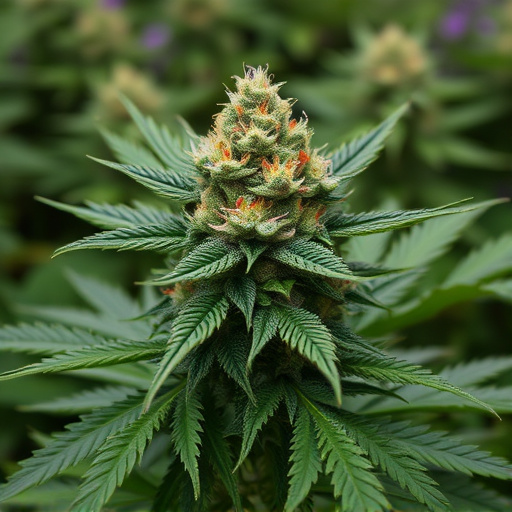
Cannabis strains with high levels of tetrahydrocannabinol (THC) have gained significant attention, especially in the context of managing various health conditions, including PTSD. Understanding what constitutes a high-THC strain is essential when considering their potential benefits and effects. These strains are cultivated and bred to contain elevated concentrations of THC, often exceeding 20% or more. The composition of cannabis includes various cannabinoids, terpenes, and flavonoids, each contributing to the plant’s unique properties. High-THC strains typically have a higher ratio of THC to other cannabinoids like cannabidiol (CBD), which is known for its potential therapeutic effects in treating PTSD symptoms without causing intense psychoactivity.
The specific chemical makeup of these strains plays a crucial role in their interaction with the body’s endocannabinoid system, particularly the CB1 and CB2 receptors. CB1 receptors are prevalent in the brain and central nervous system, while CB2 receptors are more common in the immune system. High-THC strains can modulate these receptors, leading to various effects on mental clarity, mood, memory, and physical sensations, which may be beneficial for PTSD patients seeking relief from anxiety, insomnia, or traumatic memories.
The Impact of High-THC on the Body: Short-term and Long-term Effects
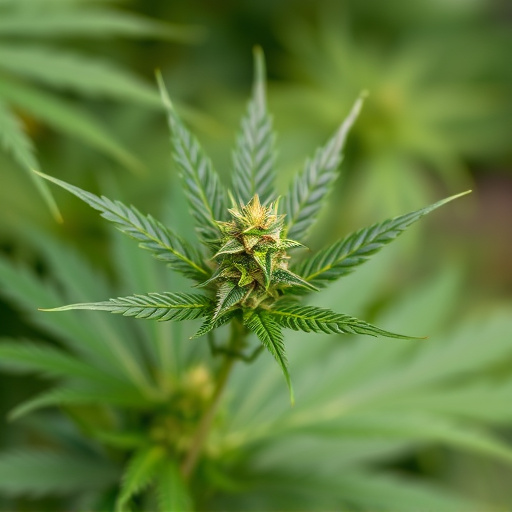
High-THC (tetrahydrocannabinol) strains of cannabis have a profound impact on the human body, with effects that can be both immediate and long-lasting. In the short term, high doses of THC can induce feelings of euphoria, relaxation, and heightened sensory perception. However, for individuals dealing with PTSD (post-traumatic stress disorder), this state of altered consciousness may not always be beneficial. The mind’s natural response to trauma is already characterized by intense flashbacks and anxiety, so invoking a state of heightened awareness through cannabis strains intended to induce relaxation could potentially trigger or exacerbate these symptoms.
Long-term use of high-THC strains has been linked to various physical and mental health effects. Prolonged exposure to THC can impact the body’s endocannabinoid system, which plays a crucial role in maintaining homeostasis (internal balance). This disruption may lead to issues such as memory impairment, increased heart rate, and potential respiratory problems. For individuals with PTSD, these adverse effects could interfere with their ability to manage symptoms effectively and maintain overall well-being. Therefore, when considering cannabis strains for PTSD treatment, it’s essential to consult healthcare professionals who can guide individuals toward suitable options that balance therapeutic benefits against potential risks.
Cannabis Strains for PTSD: Potential Benefits and Considerations
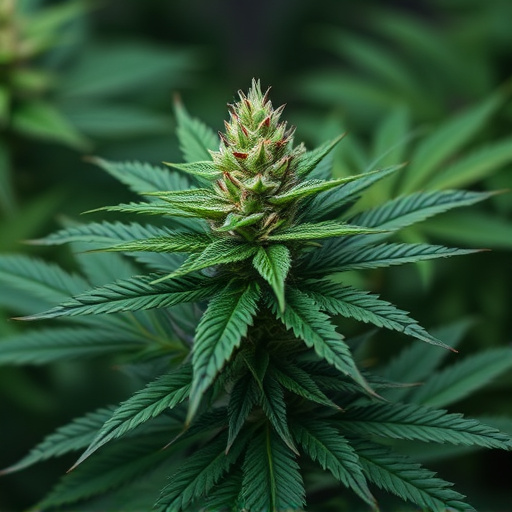
Cannabis has gained attention as a potential treatment option for Post-Traumatic Stress Disorder (PTSD), offering hope to those struggling with this mental health condition. High-THC strains, in particular, have shown promise in managing symptoms associated with PTSD, such as anxiety and insomnia. THC, the primary psychoactive compound in cannabis, interacts with the endocannabinoid system, which plays a role in regulating mood, memory, and stress responses. This interaction may help individuals with PTSD achieve a sense of calm and reduce intrusive thoughts or nightmares.
When considering cannabis strains for PTSD, it’s essential to choose varieties with high THC content while also keeping other cannabinoids like CBD in mind. CBD has anti-anxiety properties that can complement the effects of THC. Some popular choices include Indica strains known for their relaxing and sedative qualities, which may aid in improving sleep quality, a common struggle for PTSD sufferers. However, it’s crucial to consult with healthcare professionals or specialized cannabis practitioners to determine the most suitable strain and dosage, as personal experiences and responses can vary widely.
High-THC strains have a profound impact on both the body and mind, offering potential therapeutic benefits, especially for conditions like PTSD. Understanding the composition and effects of these strains is crucial when considering their use for medical purposes. While short-term relief may be achievable, long-term usage requires careful consideration due to potential side effects. Research into cannabis strains for PTSD is ongoing, highlighting the need for more studies to unlock their full potential as safe and effective treatments.
